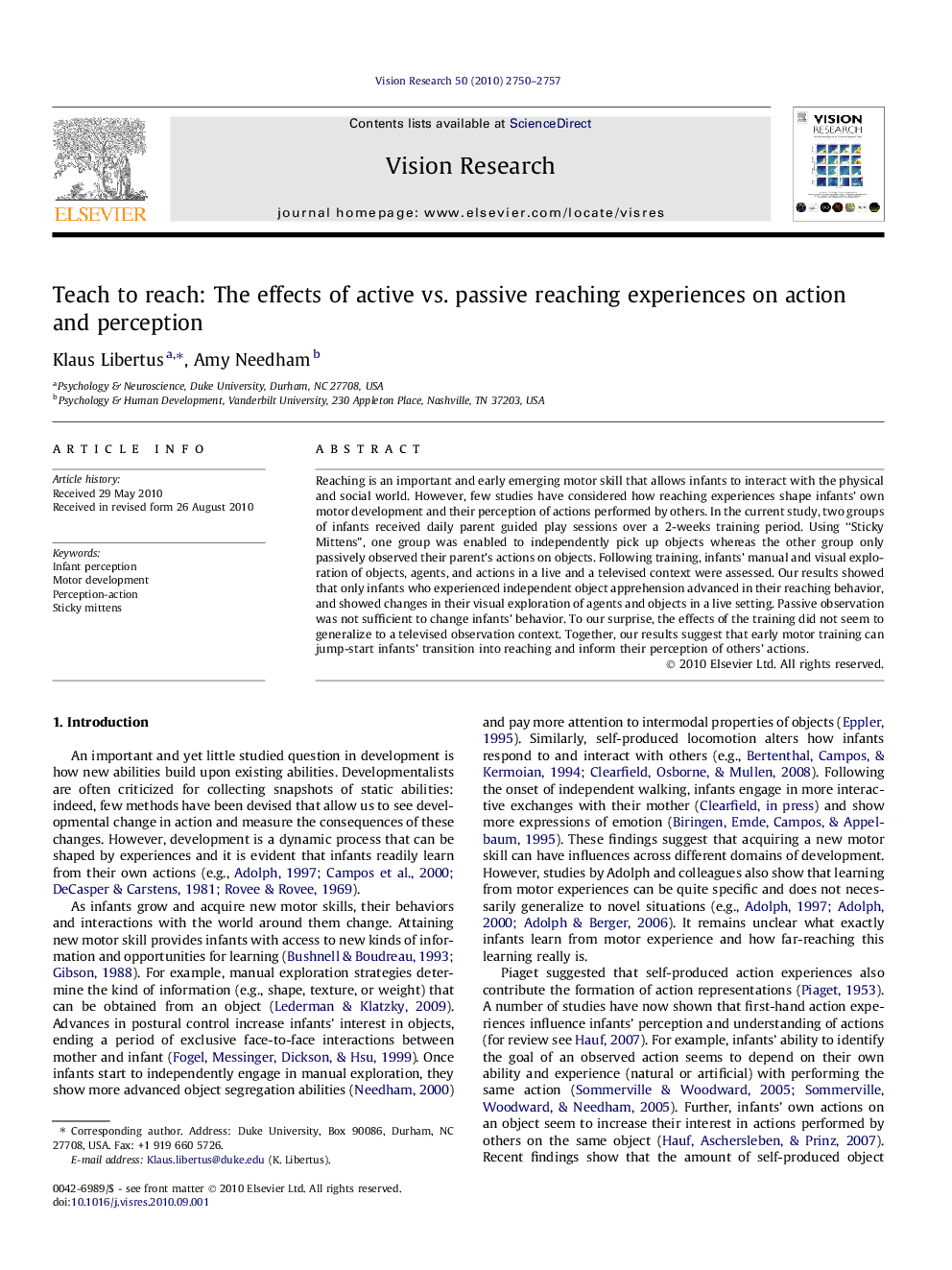| Article ID | Journal | Published Year | Pages | File Type |
|---|---|---|---|---|
| 4034229 | Vision Research | 2010 | 8 Pages |
Reaching is an important and early emerging motor skill that allows infants to interact with the physical and social world. However, few studies have considered how reaching experiences shape infants’ own motor development and their perception of actions performed by others. In the current study, two groups of infants received daily parent guided play sessions over a 2-weeks training period. Using “Sticky Mittens”, one group was enabled to independently pick up objects whereas the other group only passively observed their parent’s actions on objects. Following training, infants’ manual and visual exploration of objects, agents, and actions in a live and a televised context were assessed. Our results showed that only infants who experienced independent object apprehension advanced in their reaching behavior, and showed changes in their visual exploration of agents and objects in a live setting. Passive observation was not sufficient to change infants’ behavior. To our surprise, the effects of the training did not seem to generalize to a televised observation context. Together, our results suggest that early motor training can jump-start infants’ transition into reaching and inform their perception of others’ actions.
Research highlights► Active, self-produced reaching experiences promote reaching and grasping skills. ► Effects of active training generalize to perception in live context. ► Passive observation of actions is not sufficient to change action or perception. ► Perception in televised context is not affected by active or passive training.
